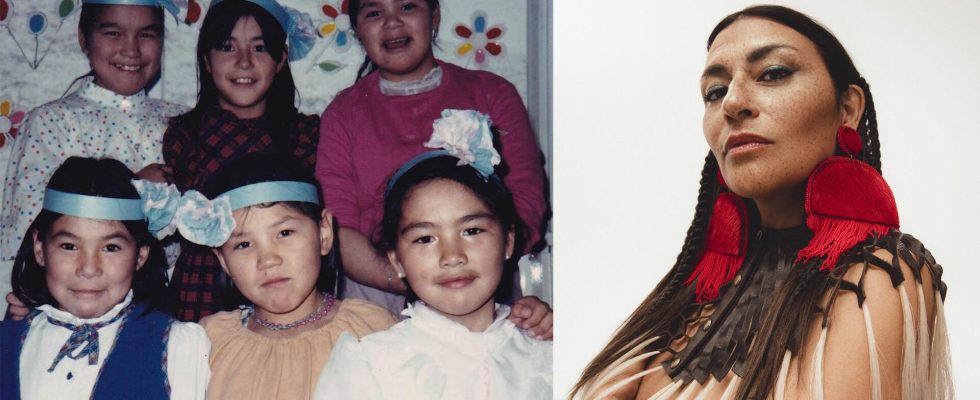Immerse yourself in the captivating worlds of Elisapie and Jeremy Dutcher. Let yourself be intoxicated by the breath of the Great North and New Brunswick with the albums Inuktitut And Motewolonuwok. (Rebroadcast)
Before starting the show, here is some information on Canada’s indigenous cultures:
There are 3 different branches of indigenous people in Canada:
– 1) First Nations: Mohawk, Mig’maq, Abenaki… (Jeremy Dutcher)
– 2) Metis
– 3) Inuit (Elisapie).
To avoid being mistaken, we say: Aboriginal
The language of the Inuit is Inuktitut: Inuk (singular) / Inuit (plural)
Elisapie presents herself as an Inuk from the Inuit people.
Common mistakes to avoid :
Confusing the Innus and the Inuit – The Innu come from the North Coast (Florent Vollant for example) / The Inuit come from the Far North (Elisapie).
Nunavik is the region in the far north of Quebec. Nunavut is a Canadian territory.
We don’t say indigenous culture but THE indigenous cultures.
There are more than 50 indigenous languages in Canada, there are 11 indigenous nations in Quebec including the Inuit: Abenaki, Anishinabeg, Atikamekw Nehirowisiw, Eeyou, Wendat, Innu, Inuit, Wolastoqiyik, Mi’qmaq, Mohawk-Kanien’kehá: ka and Naskapi.
First guest: Elisapie for the album release Inuktitut
The artist from the Far North, Elisapie, has for several years been an essential ambassador of indigenous voices, she embodies a certain musical elegance and a feminism ahead of its time.
With this new disc, the singer who grew up in Salluit, a small village in Nunavik, the northernmost region of Quebec, looks back on her childhood and adolescence by exploring her favorite songs which saw her emancipate herself as a woman and as an artist. The challenge was great to revisit these timeless songs from legendary groups or artists. However, who can claim as much delicacy as in this title Uummati Attanarsimat (Heart of Glass), cover of Blondie or this Taimangalimaaq (Time After Time), by Cindy Lauper?
These reinterpreted classics from Queen, Pink Floyd and Rolling Stones are sung in Inuktitut, his native language. From this translation, a force and an unprecedented poetry flow. In this youth playlist, Elisapie recounts her journey, her joys and sorrows, her determination too while making her culture resonate with finesse, combining modernity and tradition. From her years in the Arctic, Elisapie cherished memories of her first loves, witnessed the effects of colonialism on her community, and danced the night away at the village community center. As a teenager, she performed on stage with her uncles, themselves members of the famous Inuit rock’n’roll group Sugluk (also called Salluit Band).
At 15, she worked at the village radio station and managed to land an interview with Metallica. A bright and ambitious young woman, she moved to Montreal to study and, ultimately, pursue a career in music. Today, the Inuk singer-songwriter is an essential figure in Canada. A dedicated activist, Elisapie created and produced the first television show broadcast across Canada to celebrate National Indigenous Peoples Day. His unconditional attachment to his territory and his language is at the heart of his creative journey and therefore of his work. This ancient language embodies the harshness of the environment and the fierce beauty of the Inuit territory. This album is the fruit of all that: a constellation of memories as sensitive as they are dreamlike.
At the exit of Uummati AttanarsimatBlondie members Debbie Harry and Chris Stein praise the beauty of this version of Heart of Glass.
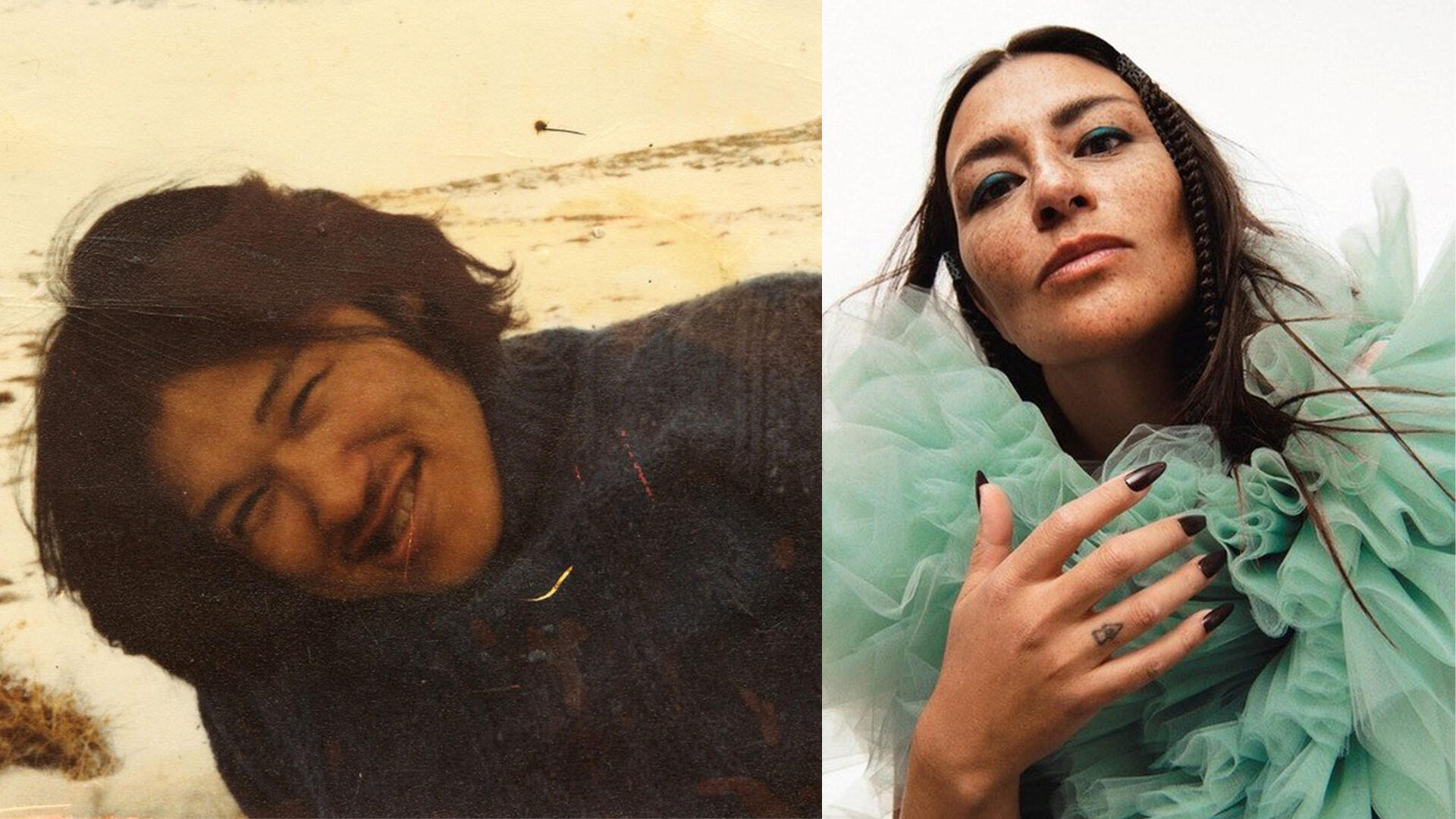
Titles played
– Uummati Attanarsimat (Heart of Glass) Blondie watch the clip
– Qimmijuat (Wild Horses) Rolling Stones watch the clip
– Isumagijunnaitaungituq (The Unforgiven) Metallica watch the clip
– Qaisimalaurittuq (Wish You Were Here) Pink Floyd
-Californiamut (Going to California) Led Zeppelin.
► Album Inuktitut (Yotanka/Bonsound 2023).
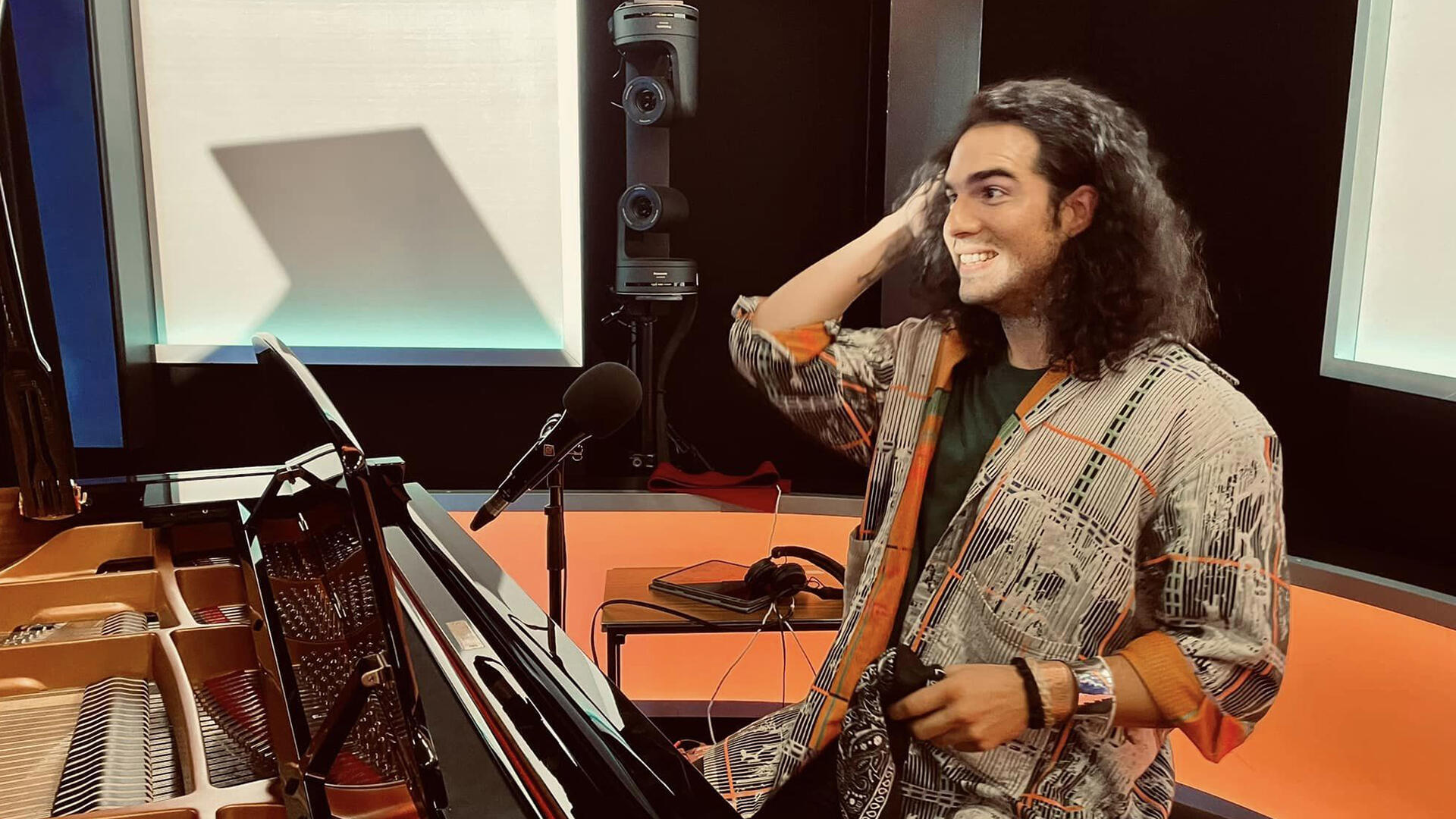
Then the #SessionLive welcomes Jeremy Dutcher for the release of the album Motewolonuwok.
5 years after winning the Polaris Music Prize with his debut album, Jeremy Dutcher returns with a radiant exploration of the contemporary Indigenous experience and his place within it. With songs in the language of his people, Wolasotqey, but also in English for the first time, Motewolonuwok surpasses anything the musician has created before, encompassing traditional songs, nocturnal ballads and striking orchestrations. “ When we analyze our stories, including our sad stories — what is the light that emerges despite everything? ? », he asks. “ I wanted to sing about suffering, then lead us towards beauty,” says Dutcher. Wolastoqiyik Lintuwakonawa, released in 2018, propelled Dutcher to the highest heights of the Canadian cultural world, from the Polaris and Juno galas to the judging panel of Canada’s Drag Race. But few could have predicted this success: the album was conceived as a museum research project, exploring the wax cylinder recordings of the Wolastoqiyik songbearers — Dutcher’s ancestors. A trained tenor, the musician ultimately sang a duet with these voices, responding to his own community through sublime reinvented songs.
This time, Dutcher wanted to make a more intimate album. A questioning. A record inspired by an observation by Yupik thinker Richard LaFortune—that “ the point where two discriminations meet can be dangerous “. This intersection can also breed resilience, and this resilience can become a strength. “ Motewolonuwok is an ancient Wolasotqey word that is usually translated as “witches”. That’s also what two-spirit people in the region are called — people who are Indigenous and queer, like Dutcher, and who have specific traditional heritage. “ They are “people with great spiritual strength” “, he explains. “ It’s an honor, rather than something to be ashamed of. » Dutcher revealed his homosexuality at age 12, but the very idea of “coming out” was imposed on him by colonialist structures. “ Two-Spirit or Indigenous queer identity is so beautiful because it does not come from a concept of deviance. » And yet, “much of this ancient knowledge has been lost,” he emphasizes, and as a child growing up in New Brunswick — and even as an adult now living in Montreal — he is still evolving. through a “median space “.
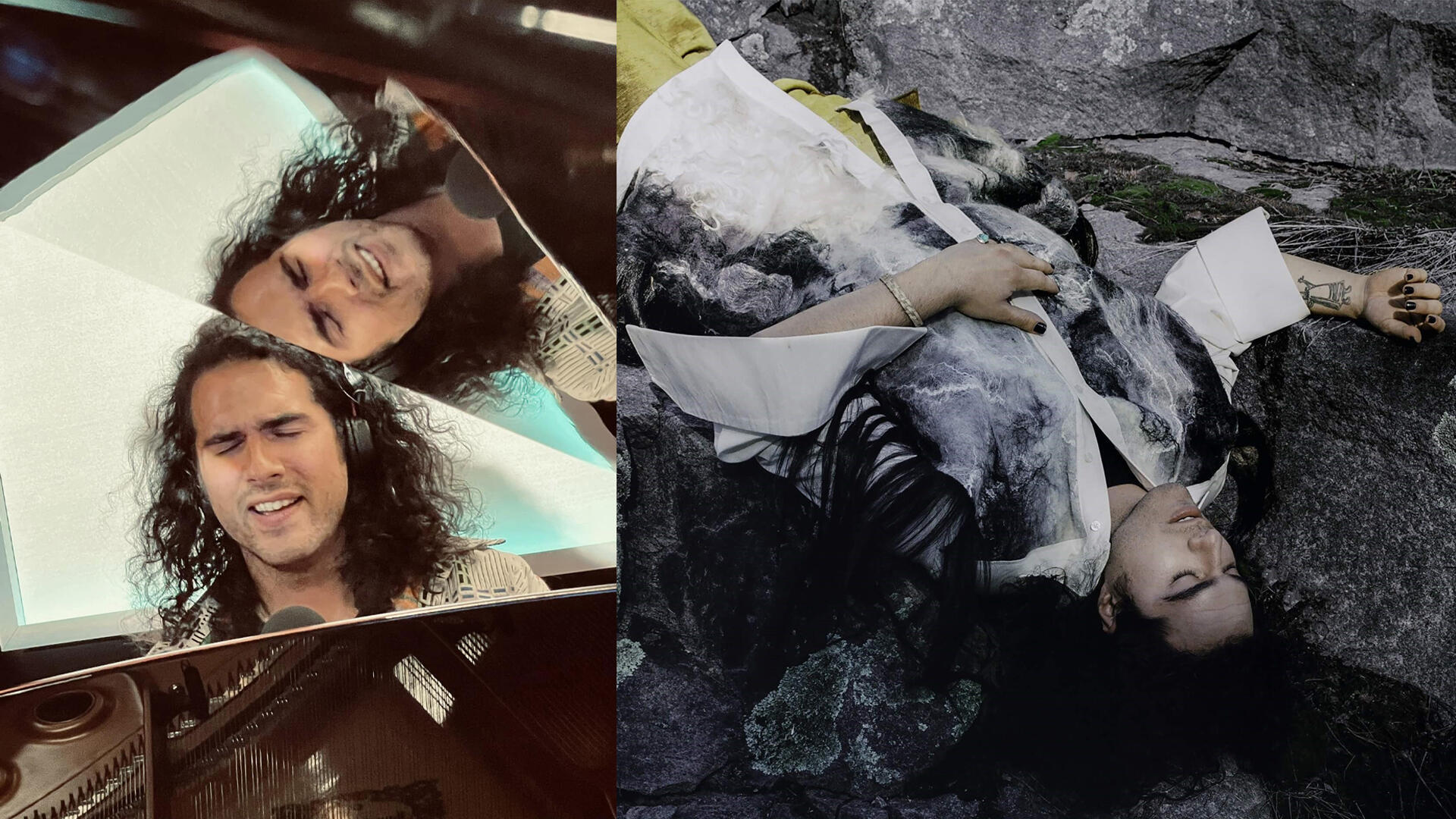
The Land That Held Them, his tribute to “those who left us too soon”, vibrates in a way that evokes Nina Simone and Anohni. Elsewhere, instead of a modest, almost private sound, Dutcher uses the biggest canvas possible: a full orchestra, with arrangements by Owen Pallett and, on tracks like sakom, a choir of 12 voices, those of Dutcher’s queer peers and friends. The singer rented a bus to bring them to Kingston to record — comrades from the Halifax music school, as well as members of the Toronto jazz scene and the irresistible Queer Song-book Orchestra.
Listen Motewolonuwok, is to hear an album with multiple voices. There is Dutcher’s, more exposed than ever. There is his impromptu choir. We hear reinterpretations of traditional tunes from the banks of the Wolastoq River, as well as verses by Cherokee poet Qwoli Driskill. Dutcher sings in Wolasotqey—literally his mother tongue—but also in English, his father’s language (and the one he spoke most during his youth). A shared language is a gift with complex intention; on MotewolonuwokDutcher not only sings for his community, but also “ directly for the newcomer [colonisateur] ”, in his own language, to tell stories of grief, resilience and rebirth. Making music is like learning a language, according to Dutcher—“ there is no particular conclusion “. It’s more like “a rampage” – a constant exploration of what we want to say and how we can express it. Motewolonuwok is the musician’s next chapter — a collective wish and restorative medicine, a confession and a refrain.
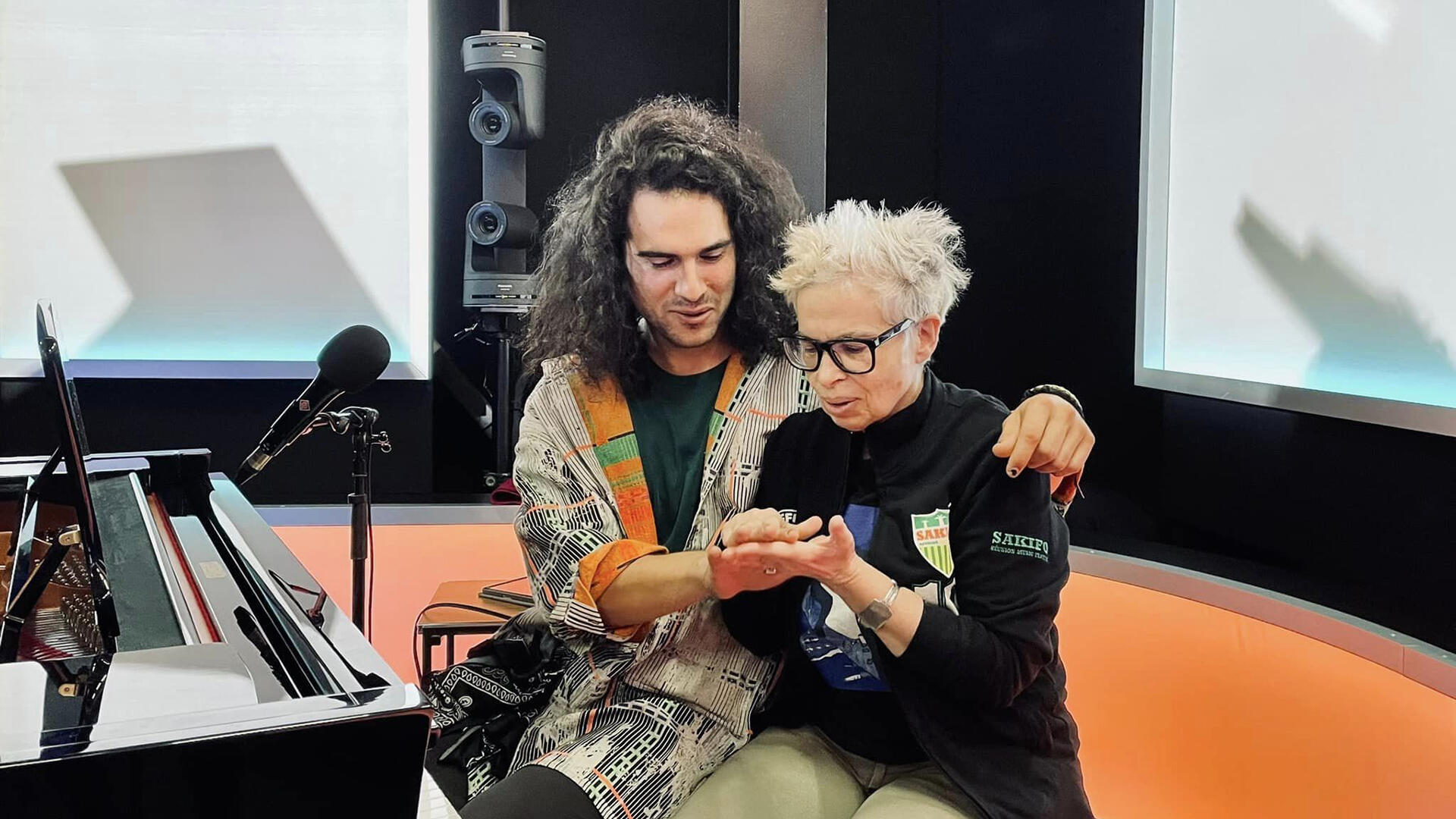
Titles performed in the big studio
– Ultestakon Live RFI
-Take My Handfrom the album watch the clip
-Skichinuwihkuk Live RFI watch the clip.
Line Up: Jeremy Dutcherpiano-voice.
Translation : Claire Simon.
Sound: Mathias Taylor, Benoît Letirant.
► Album Motewolonuwok (Secret City Records 2023).
